At the Sensor+Test trade fair, Melectric will be presenting a wide range of solutions for the precise measurement of mechanical loads, including systems for wireless torque measurement, applications for the e-bike sector, and telemetry units for highly dynamic processes. The technology on display is primarily aimed at developers and manufacturers who require reliable real-time data without having to put up with complex cabling or complicated commissioning.
A particularly popular product in the portfolio is a torque measurement flange that has been specially developed for use in agricultural engineering. The system measures both the torque and the speed of a drive train and is primarily designed for manufacturers of agricultural machinery, not for end use by farmers.
The special feature of the flange is its wireless functionality. The measurement data can be transmitted in real time to mobile devices such as tablets, laptops, or stationary PCs via a radio connection. Alternatively, a gateway from Melectric can be used to transfer the data directly to a physical network. Various interfaces are available, including CAN bus and analog outputs with 0–5 volts or 4–20 milliamps. Configuration is carried out using a customer-specific software solution that enables both signal transmission and data recording on the gateway. The measurement data can be stored locally, sent by email, or integrated directly into existing systems.
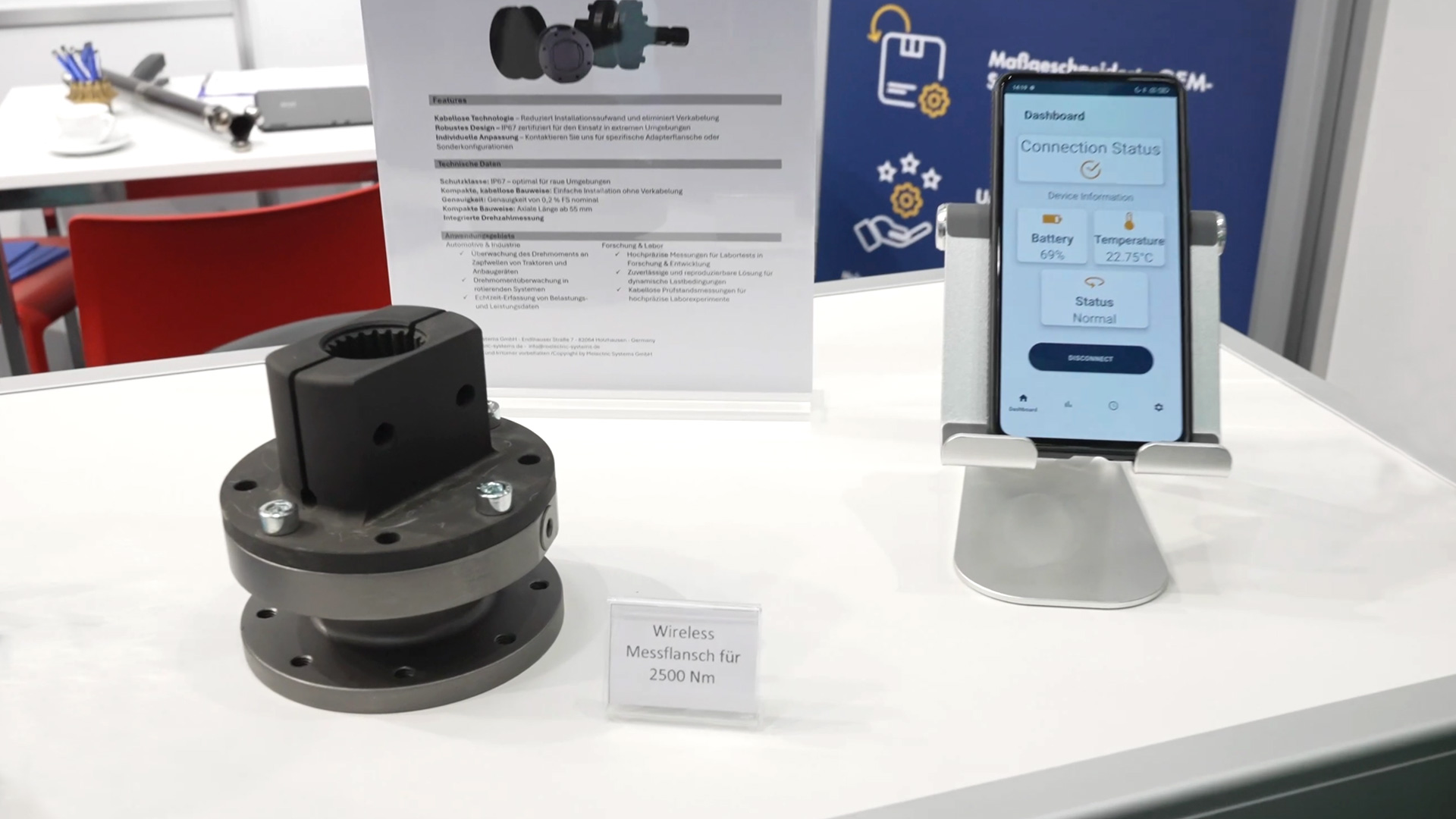
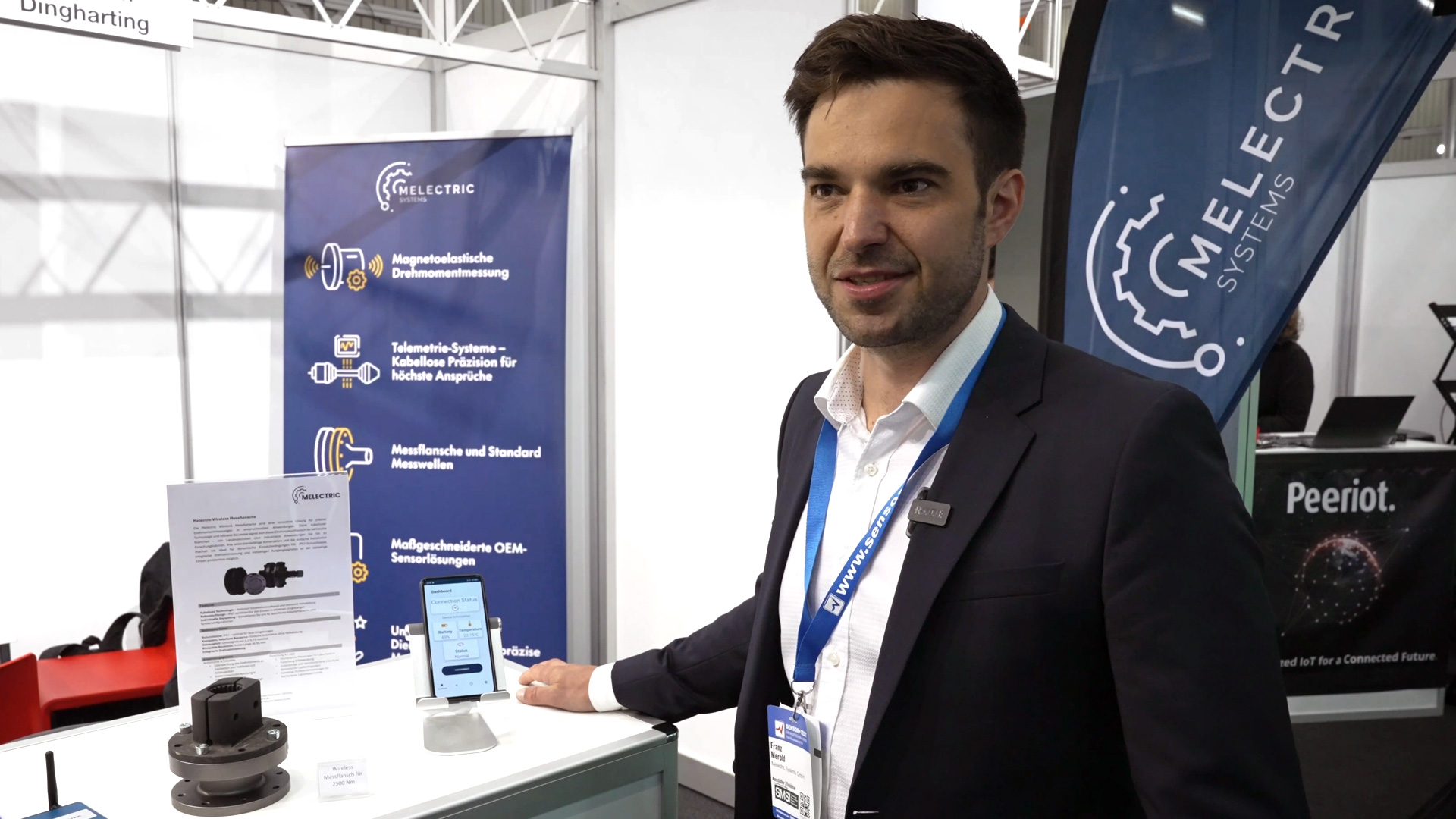
The entire system is wireless and contactless. The flange can rotate freely and is mounted in a matter of seconds. Commissioning is straightforward, which is a decisive advantage, especially in prototype phases or with frequently changing test setups. The measurement technician can thus start a complete measurement campaign in the shortest possible time without making any mechanical changes to the machine.
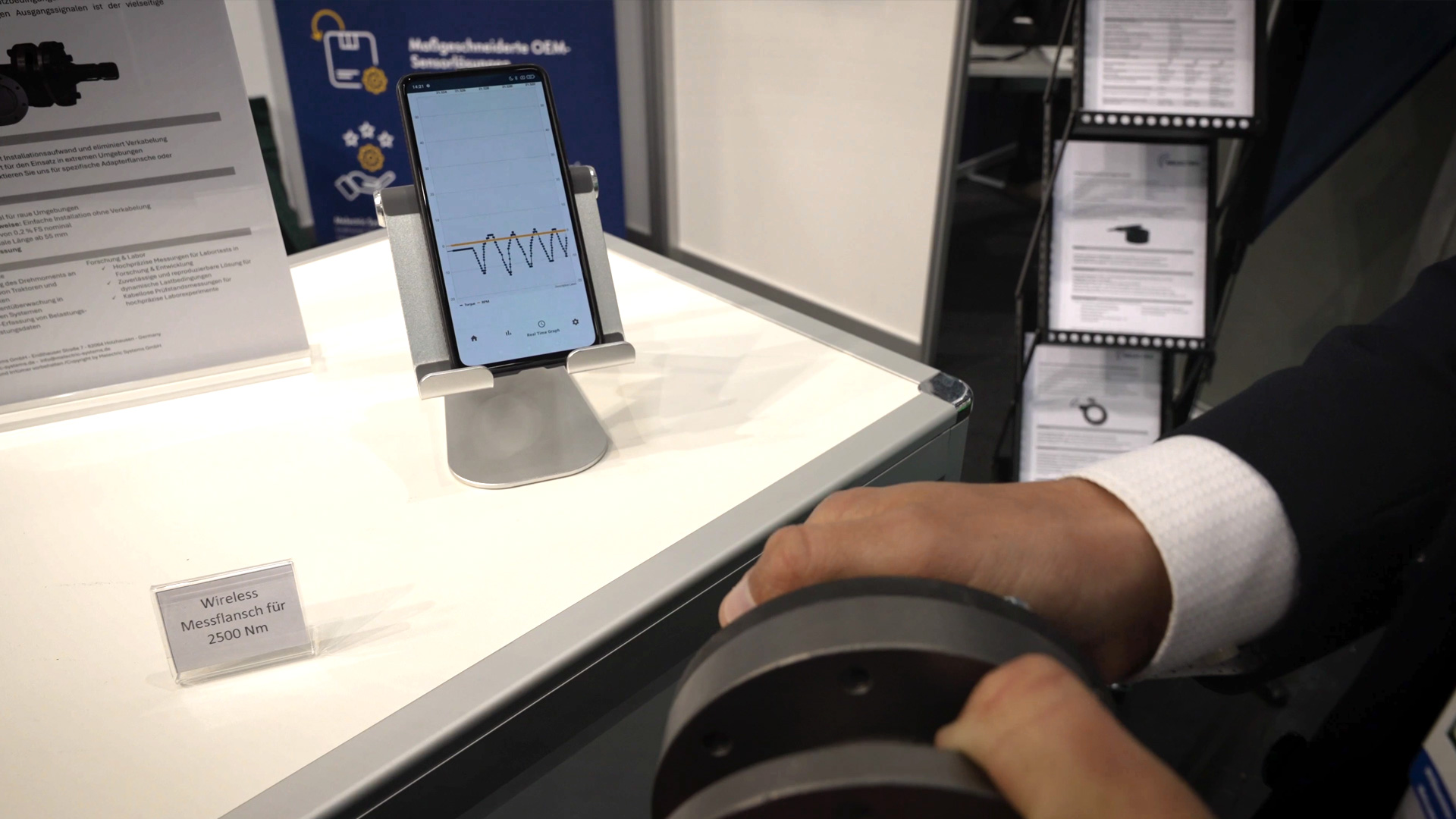
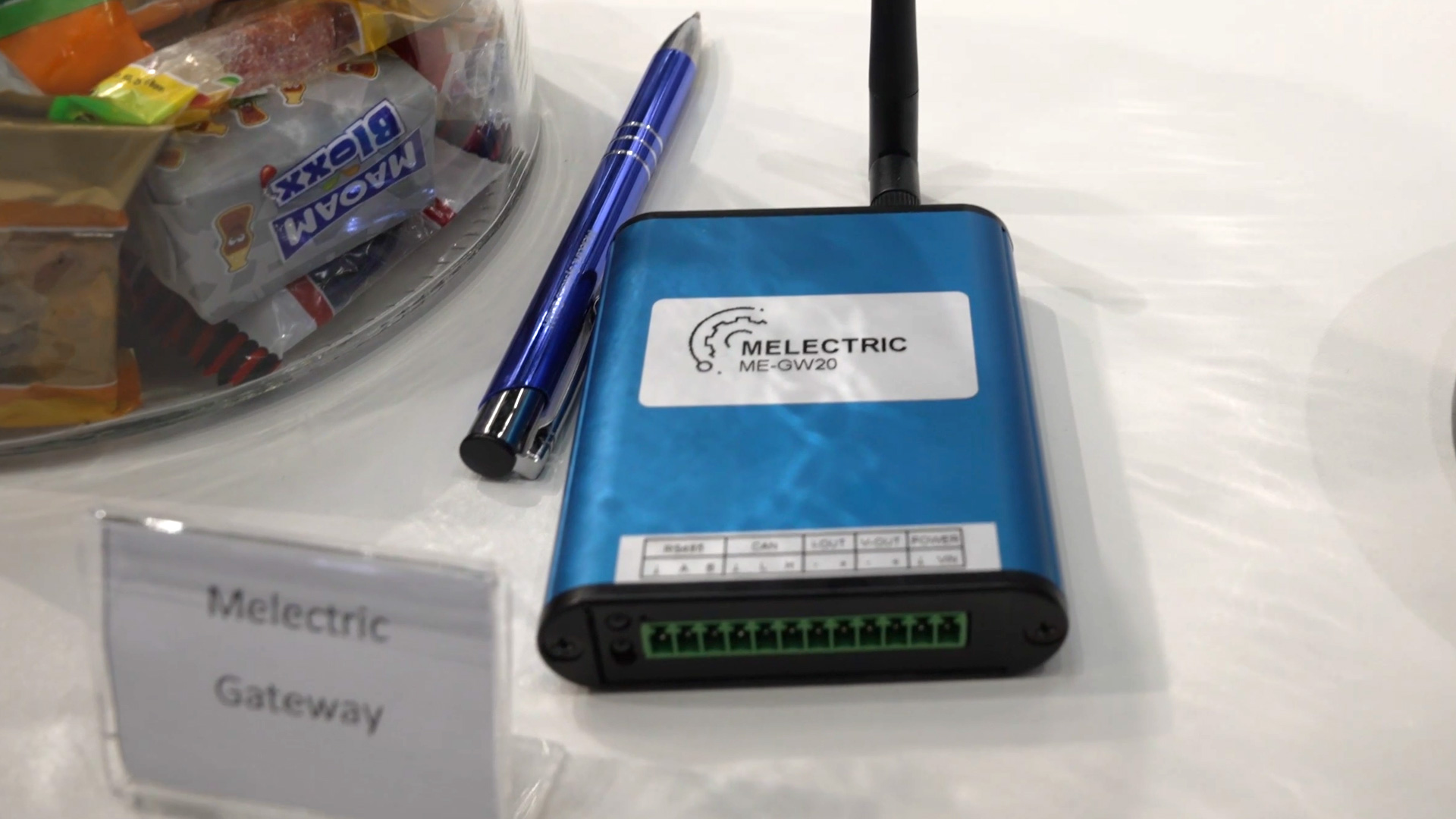
Another field of application for Melectric technology is in the area of electromobility – specifically for pedelecs and e-bikes. Here, a special magnetic method is used that is based on a specially developed magnetization component. The drive shaft of the bicycle is invisibly magnetized. A small measuring device, originally from an e-bike, is pushed over the shaft. Changes in the magnetic field under load enable the system to precisely measure the torque applied.
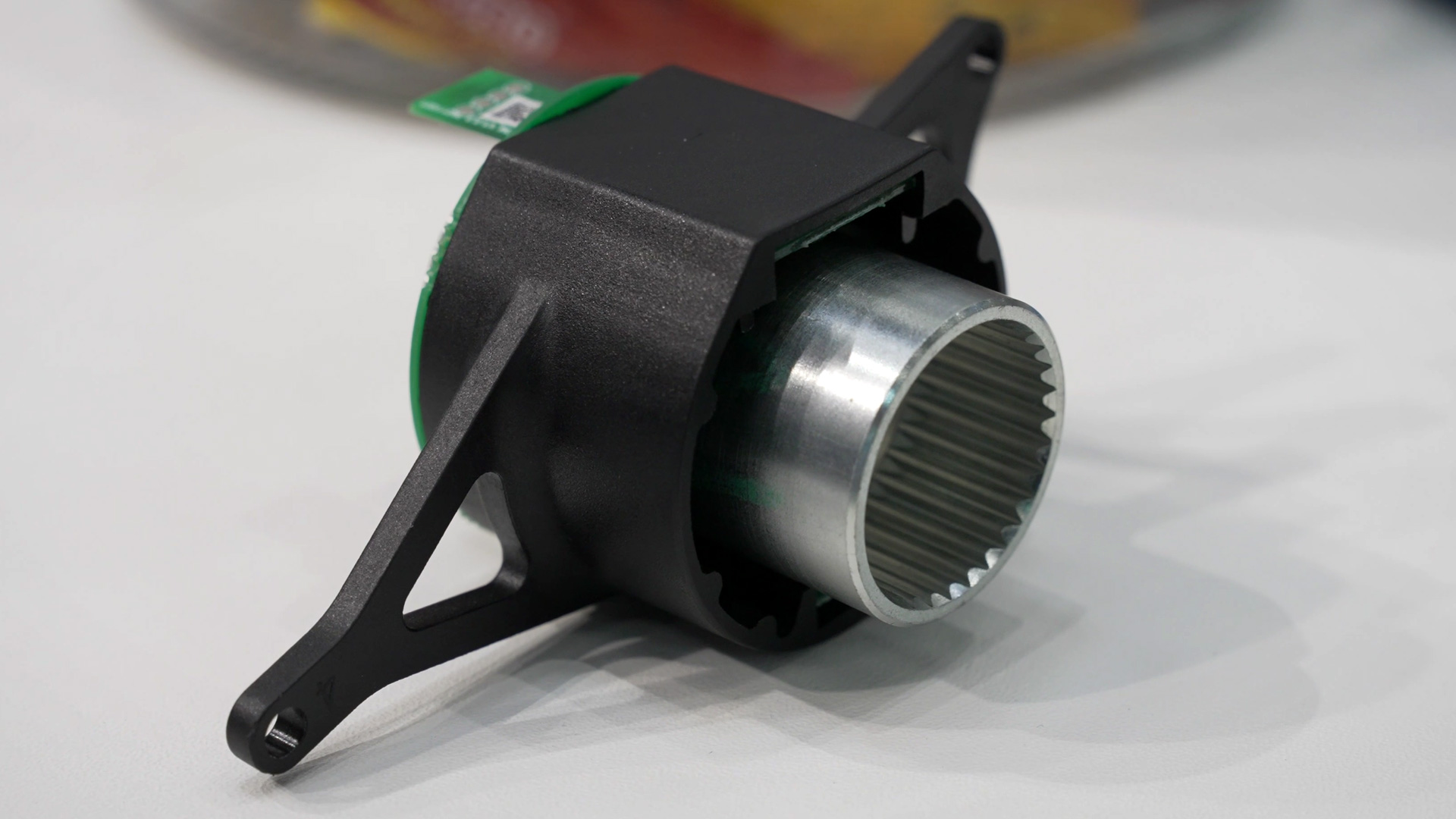
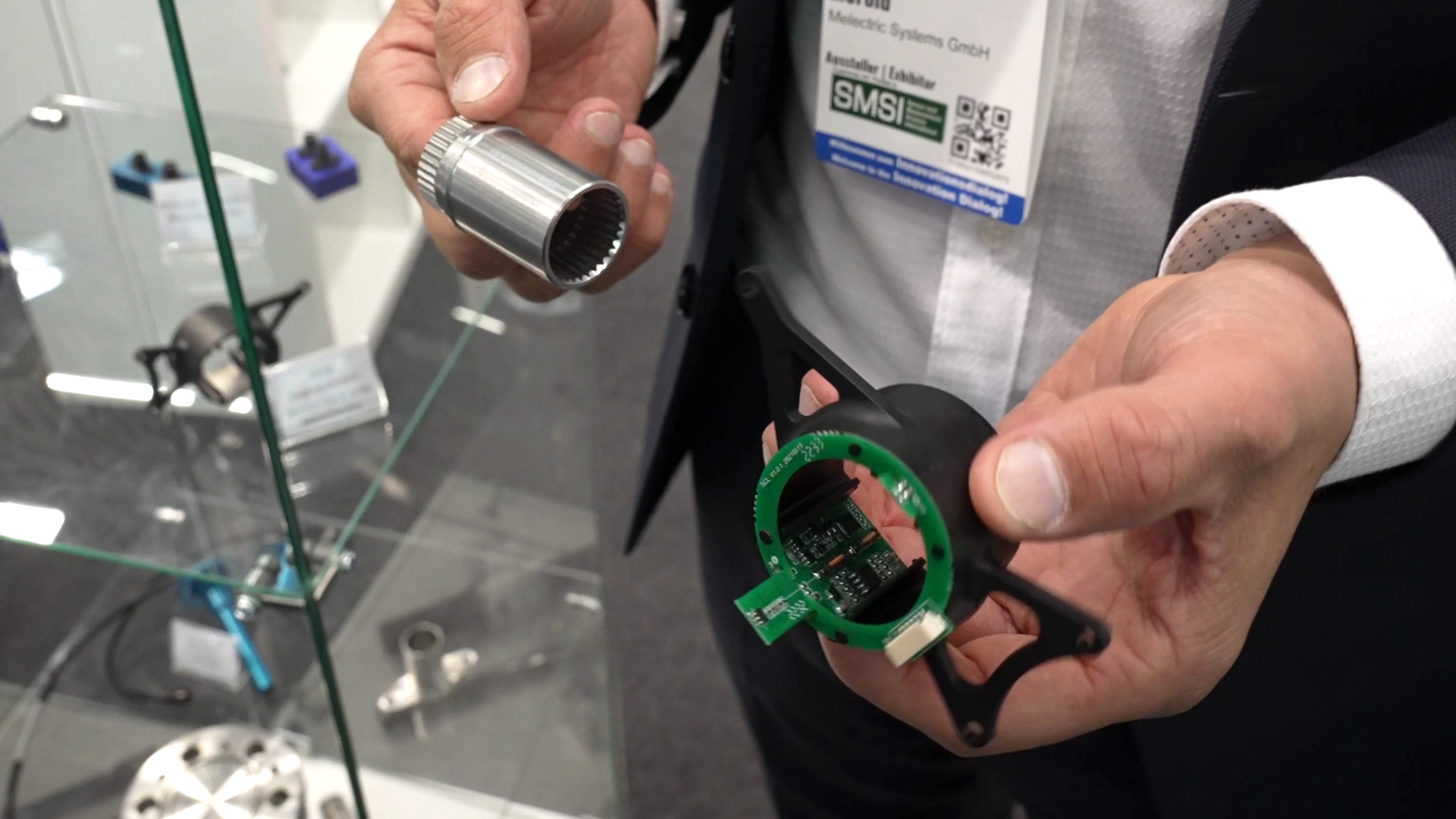
During operation, the data collected is used to tell the motor how hard the rider is currently pedaling. This is used to calculate the required assistance current with the aim of creating the most harmonious and natural riding experience possible. The response speed of the system plays a key role here, as even slight delays can have a negative impact on riding comfort. Melectric thus offers a solution that delivers precise, wireless measurements in both series production and development.
In another segment, Melectric demonstrates how even extreme mechanical loads can be measured – for example in impact wrenches, where massive torque pulses occur within a very short time. Forces of up to 3000 Newton meters are exerted in such tools, distributed over periods in the microsecond range. Conventional sensor technology quickly reaches its limits here.
Melectric has developed a compact measuring unit for this purpose that is installed directly in the coupling bell of an impact wrench. The system scans at frequencies of 30 to 40 kilohertz and can thus reliably detect even the shortest pulses and convert them into digital measured values. This data is then available for evaluation, further processing, or process control. Measuring such highly dynamic processes requires not only precise sensor technology, but also extremely stable and fast signal processing – both of which are combined in Melectric's solution.
The range is supplemented by telemetry systems based on strain gauges that work via inductive coupling between the rotor and stator. These systems are capable of measuring not only torque but also axial forces, bending forces, and temperatures. Such solutions are particularly useful in electric motors where, for example, the temperature of the rotor must be monitored.
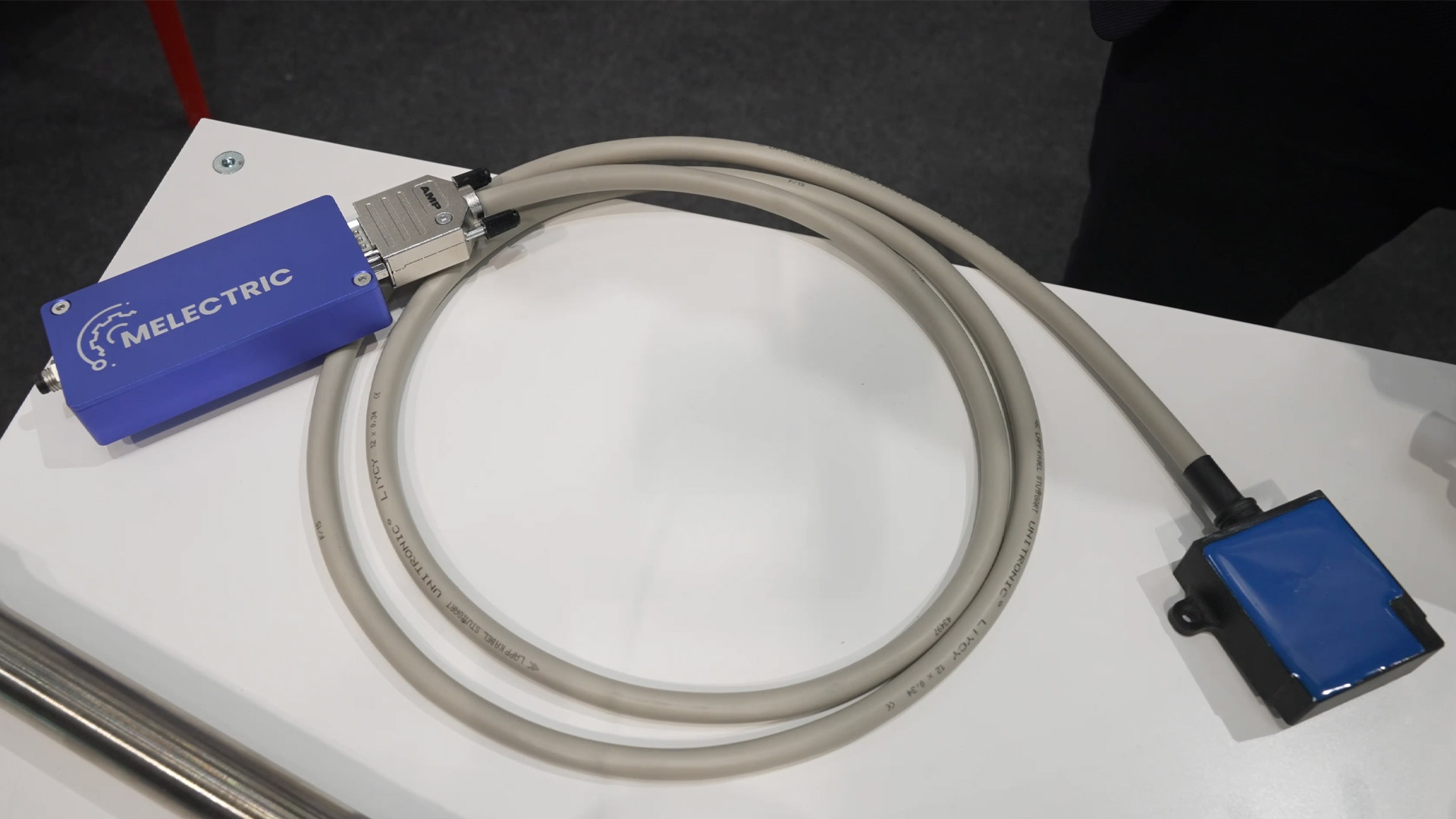

Since rotating components are often installed in inaccessible locations, conventional cabling is hardly feasible. In such cases, contactless telemetry units offer a technically clean solution. The measurement data can be read reliably without the need for mechanical interfaces. This makes the systems ideal for measurements during development, for validation, endurance testing, or for series monitoring of complex drives.
The modular design, high measurement frequency, and compatibility with a wide range of interfaces make Melectric systems a versatile tool for product development, testing, and field trials. The applications shown at Sensor+Test illustrate how flexible today's technology can be—without compromising on precision, response speed, or system integration.